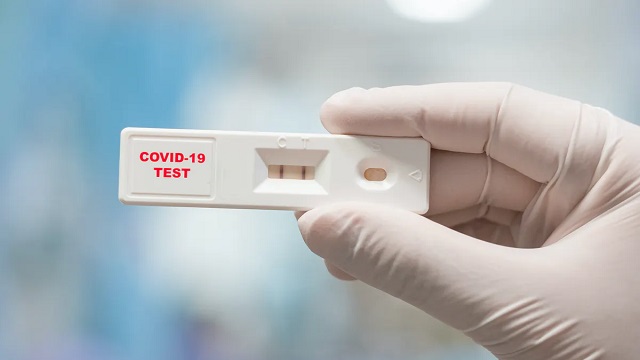
Kampala, Uganda | THE INDEPENDENT | The Rapid Diagnostic Tests (RDTs) are not reliable in clinically diagnosing the coronavirus (COVID-19), the Uganda Virus Research Institute (UVRI) has found.
Dr. Pontiano Kaleebu, the Executive Director of UVRI told a meeting of COVID-19 researchers on Wednesday that they have screened more than 20 kits but only five showed effectiveness of about 98%.
Even for those that showed specificity and sensitivity of above 90%, Kaleebu says they gave confusing results when they tested their performance in detecting different antibodies which he worries would pose challenges for health workers to interpret.
While many manufacturers have come into the country and presented several of these RDTs, Uganda has not yet approved any of them for COVID-19 patient care. The country still recognizes only the PCR tests even as the World Health Organization approved the use of the antigen RDT test in September.
Dr. Kaleebu says they have found the kits lack what the manufacturers say they can do and have now instead explored other cheaper PCR tests that the country can consider.
Meanwhile, as RDTs are being discouraged, scientists at Makerere University say they are in advanced levels of completion of a testing kit which should be available for use in December.
Dr. Misaki Wayengera, a lecturer who is the Principal investigator on the study said their innovation is as effective as the gold standard PCR. He explains that it is low cost and provides results in two to three minutes and can be used at the point of care even in the most remote areas as it doesn’t require a laboratory or unique technical skill to conduct.
However completing this innovation, Misaki says they need up to 870,000 dollars of which the government of Uganda through the Makerere University Research and Innovations Fund has already provided about 20,000 dollars which was used to buy reagents.
He says this is only a drop in the ocean as they have had to redo some procedures in order to have a globally acceptable product. Initially they had set to have the test in use by June.
On Monday, the researchers were given a boost of $17,000 by the French Embassy to fast track the availability of the kit. In his remarks at the Memorandum of Understanding signing ceremony, Ambassador Jules-Armand Aniambossou said it’s important that the test comes in quickly considering the current raise in community transmission, affirming that Genecust, the French company that supplied the researchers with reagents for the test is credible.
Once approved, this test will be Uganda’s first RDT to be used to test for COVID-19.
*****
URN
 The Independent Uganda: You get the Truth we Pay the Price
The Independent Uganda: You get the Truth we Pay the Price





